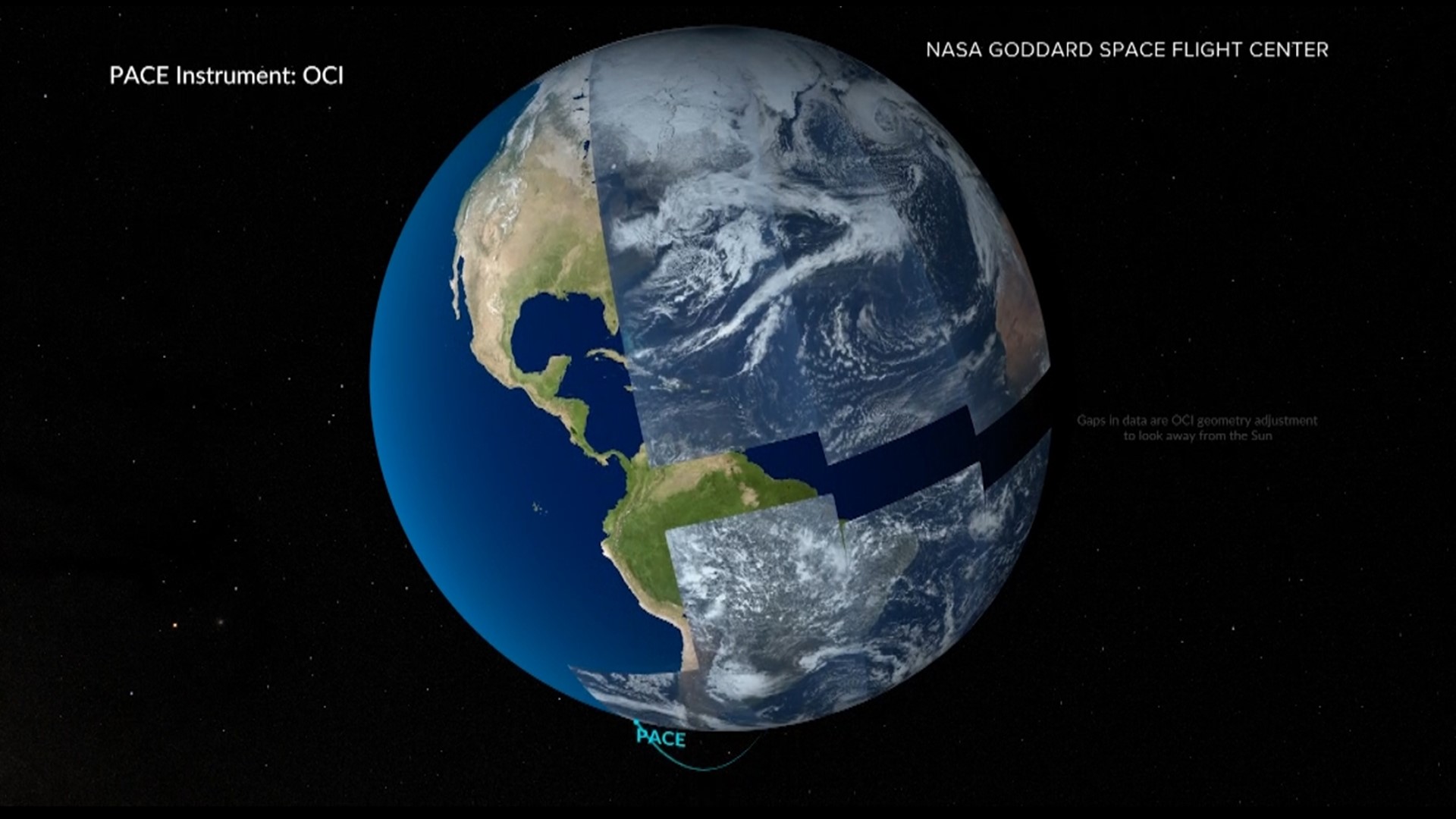JACKSONVILLE, Fla. — This Earth Day, NASA is focused on oceans.
NASA is studying our oceans through their newest satellite called PACE, which stands for Plankton, Aerosol, Cloud and ocean Ecosystem.
Since launching in February, it’s been tracking aerosols.
"The reason for that is multiple issues that impact the climate, impacts air quality, but also aerosol particles are the nuclei for forming clouds," said Dr. Amir Ibrahim, a PACE Ocean Scientist. "So cloud particles basically form around these aerosol particles."
But in the case of Saharan dust, it can choke out a hurricane, and now we’ll be able to track and monitor these dust plumes using the PACE satellite.
It will also reveal how aerosols might fuel phytoplankton growth in the ocean.
"What’s unique about the PACE mission is that it will have the capability to tell us what kind of phytoplankton there are in the ocean," said Ibrahim. "Is it harmful? Is it good for the environment or not?"
PACE will benefit coastal areas by detecting things like cyanobacteria or red tide from space.
"And this will help us definitely better predict how they form and help us to understand, is it okay, is it safe for us to go to the beach? Is it ok for us to have our vacation? So definitely the data from PACE will help us do that," said Ibrahim.
As always, the Most Accurate Weather Team will keep a close eye on algae blooms and tropical activity this summer.

